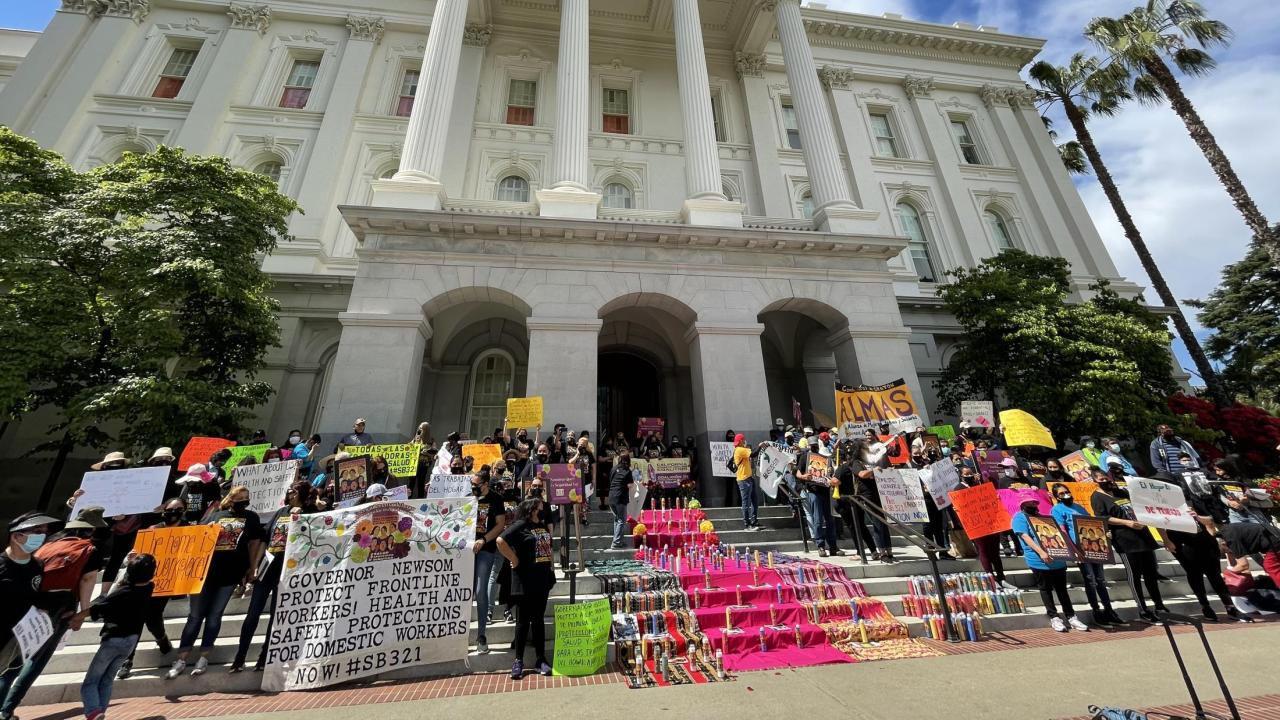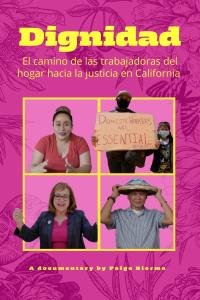
Domestic Workers Are Closer to Achieving Health and Safety Protections: Senate Bill 686 Moves to the Appropriations Committee
UC Davis EHSC joins the California Domestic Workers Coalition in celebrating two crucial milestones for advancing domestic workers' health and safety.
UC Davis Environmental Health Center (EHSC) joins the California Domestic Workers Coalition in celebrating two crucial milestones for advancing domestic workers' health and safety. The first concerns the 2024-2025 budget, which allocates $35 million to fund a Domestic Worker and Employer Education and Outreach Program (DWEOP), enabling community-based organizations to expand education, outreach, and training for domestic workers and employers. The second milestone concerns a unanimous vote by the California Assembly Committee on Labor and Employment to advance Senate Bill 686, bringing domestic workers closer to achieving the same workplace legal rights as other workers.
UC Davis EHSC began collaborating with the California Domestic Workers Coalition - the state’s leading advocate for 300,000 domestic workers - during the COVID-19 pandemic. Early in the pandemic, Dr. Hertz-Picciotto was struck by the many clusters of COVID-19 cases at places of employment and the paucity of information about how the epidemic affected workers’ health and safety. As a part of the UC Davis EHSC Disaster Research Response efforts, Dr. Hertz-PIcciotto launched a state-wide COVID-19 Survey for Workers, aiming to understand how workers and their families have been affected by the pandemic at home and on the job.
In addition to the general survey, the research team worked with several organizations, including California Domestic Workers Coalition, to develop targeted surveys for domestic workers, healthcare workers, and day laborers. The survey focusing on domestic workers revealed that they were three times more likely to contract COVID-19 than the general population.

This research finding inspired the Center’s work on Dignidad: a documentary that followed organizing around Senate Bill 321 that aimed to extend Cal/OSHA health and safety protections to 325,000 domestic workers in California. The bill was partially successful. It established an advisory committee tasked with making recommendations on how to protect the health and safety of household domestic service employees.
The SB 321 Committee Policy Recommendations Report was released in December 2022. It emphasized the importance of ending the continued exclusion of household domestic services from California labor code. Shortly thereafter, Senator Durazo, joined by California Domestic Workers Coalition, introduced Senate Bill 686. SB 686 will give Cal/OSHA the authority to develop official health and safety guidance for employers and require employers to comply with all applicable health and safety regulations. Additionally, SB 686 will provide resources for financial assistance for low-resourced employers to execute these guidelines and increase education and outreach programs run by community organizations. As of June 28th, the bill has been re-referred to the Committee on Appropriations.

Julianne Ng is an undergraduate student at UC Davis studying Environmental Policy Analysis and Planning and intends to minor in Technology Management. Julianne has recently joined the EHSC team as a summer 2023 student assistant. Within this role, she writes blogs delving into various EHSC projects, assists with the Pilot Projects Program, and contributes to social media analytics efforts.